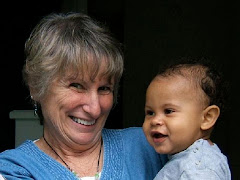Wednesday, December 28, 2011
Special Education Setting
I commented today, on my facebook page: Challenging Children, about the special educational settings for emotionally challenged children. It occurred to me that what one witnesses all too often in these settings is a lot of chaos, a lot of disruptive behavior. And what happens more often than not is that it sets off dysregulation in everyone including the teacher and the paraprofessionals in the classroom. These classes are always small because Article VII of the Special Education Law specifies the class size. However, it does not take more than one dyregulated student to set off other students. Students in these classes have very small windows of stress tolerance and once the window is exceeded, my experience has been, that little to no learning takes place and threats and consequences get multiplied. And make no mistake, these are not easy settings to work in...one has to have a very large window of tolerance herself and has to be ever watchful of the students to know when and how to intervene. If one watches closely they know the minute their students walk in the door of the classroom which child/children will be set off before very long. This is the time for intervention...this is the time when relationship overrides everything else in importance. If the teacher, or the para can connect with the student who seems dysregulated, everyone's day will be better. And connecting in relationship is not reminding the students that they have so many points or stars or whatever the particular incentive is that students are suppose to be working toward. It is talking with that child about him, about how he's doing...what he needs that day. Unfortunately, most programs will begin with a review of points, or other incentives or penalties and that will be viewed as a threat to those students and those "consequences" will be the trigger for reactivity instead of the carrot that the students will go after in order to be able to work themselves back to a regular school setting. Students respond best to positive connection, to genuine interest, to attunement (being in sync with)... they respond to respect.. They do know what they need to do to get to the preferred school setting, and they would do it if they could, but they can't. It is the job of the teacher and the teacher aide, and the other adults in the building to help them...they don't need more props, they don't need more incentives...they need to be heard, to be understood, to be validated. When this happens, learning will follow.
Subscribe to:
Posts (Atom)


